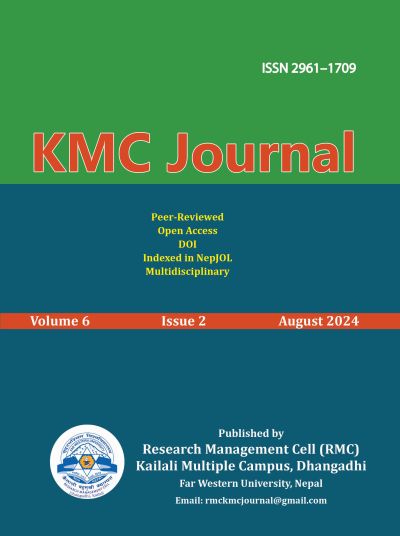Reflecting on Online Learning Experiences of Secondary School Teachers and Students during COVID-19
DOI:
https://doi.org/10.3126/kmcj.v6i2.68900Keywords:
Alternative learning, COVID-19 pandemic, flexibility, pedagogical shift, school transformationAbstract
This paper examines the experiences of secondary-level students’ learning and teachers’ teaching strategies via Zoom during the COVID-19 pandemic in Nepal. The government formally announced the closure of physical classrooms to mitigate the outbreak of the coronavirus. This study utilised a qualitative interpretive research design and conducted online semi-structured interviews with the participants, observed their online classes and conducted documentary analysis. The findings of this study indicate that online learning in urban areas provided a flexible and alternative mode to physical classrooms. However, students and teachers faced challenges, such as irregular power supply, poor internet connection, expensive mobile data, lack of digital devices and limited ICT skills among teachers when it came to managing and delivering online classes. Additionally, the study highlights the inability of rural students to access online learning during lockdown. The efficacy of teachers in developing ICT and e-pedagogy skills played a crucial role in sustaining online learning. To ensure equal opportunities for quality education among students from marginalised and disadvantaged communities, it is recommended to equip schools, teachers, and students with the minimum ICT infrastructure and to provide subsidies on computers and internet access.
Downloads
Downloads
Published
How to Cite
Issue
Section
License

This work is licensed under a Creative Commons Attribution-NonCommercial 4.0 International License.
This license allows reusers to distribute, remix, adapt, and build upon the material in any medium or format for noncommercial purposes only, and only so long as attribution is given to the creator.




